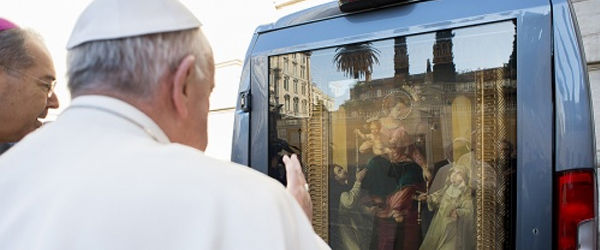In his monumental study of atheism, Michael Buckley suggests that atheism is invariably a parasite that feeds off bad religion, picks on bad religion, and picks apart bad religion. If that's true, then ultimately atheists do us a huge favor. They pick apart bad religion, showing us our blind spots, rationalizations, inconsistencies, double-standards, hypocrisies, moral selectivity, propensity for power, unhealthy fears and hidden arrogance. Atheism shows us the log in our own eye. On our honest days, we admit that this is a needed challenge. Ideally, of course, we should be sufficiently self-aware and sufficiently self-critical to see all these things for ourselves or, barring that, be attentive enough to our own prophets to stay aware of where we're falling short. But that's rarely the case and, as a result, there's invariably bad religion — and this has always helped spawn negativity towards religion and atheism. And we see this playing out at different levels. Philosophically, of course, its most powerful expression comes from the two most-famous atheists of the 19th century, Ludwig Feuerbach and Fredrick Nietzsche. Their real criticism of religion and of us, its practitioners, is not so much that belief in God is "the opium of the people" and that a focus on the next life helps keep us subjugated in this life, though they do affirm that. Rather, their deeper criticism has to do with our religious actions — namely, that we use the idea of God and religion to rationalize our own desires. For Feuerbach and Nietzsche, God did not make us in his image and likeness; rather, we've made God in our image and likeness. For them, God is a projection of the mind and we have perennially used that projection to morally justify and bless our own immaturity, our own will, our own fears, and our own rationalizations. As individuals and as churches, we simply use the idea of God to do whatever we want, and then call it God's will. We are not, in the end, obedient to any power or a will beyond our own, except that religion makes it seem that we are. In our ordinary church lives — where few, if any, ever read Feuerbach and Nietzsche — we simply meet this criticism in a different language; bad religion still gets picked apart. Inside the culture, we have people like Christopher Hitchens and Richard Dawkins who keep the knives of atheism sharp and operative. More painful for us, though, is the fact that bad religion gets picked upon and picked part by many of those who are dear to us, not least of all our own children. More recently, a lot of that criticism has centered upon the sexual abuse crisis in the church. But everywhere within our culture, religion and our churches are being picked apart because of our inconsistencies, blinds spots and moral selectivity. Much as this criticism hurts and can seem unfair, at the end of the day, most of it is true. Moreover, our attempts to defend ourselves, our apologias, are often simply further rationalizations and further failures to admit our own shortcoming, giving our critics even more of a corpse to feed off. Defensiveness is not helpful here. Our response to atheism and to other critics who feed off our religious faults must begin with an acknowledgement of where they are correct, even if those criticisms emanate from voices that are unfair and are, themselves, rationalizing. For example, an unfair media does not create any of our sins and shortcomings; we do. Our response to atheism and criticism of our faith and religion should be threefold: —First, we should be grateful for the challenge. We've never been fully faithful and we're better off openly hearing what's being thought of us and said of us than not hearing it. Denial is not a friend. —Second, we need to acknowledge, without undue defensiveness, what's true and resist the temptation to defend ourselves in ways that simply create more bad religion for our critics to feed upon. When we're over-defensive before our critics, we not only cast ourselves and our churches in a bad light; worst of all, we cast God in a bad light. —Finally, and most importantly, the real response to bad religion is never secularism or atheism, but better religion! We need to be more consistent, both in private conscience and in church practice. What is better religion? How do we recognize better religion? We recognize true religion in the same way as we recognize true beauty and goodness. They're self-evident when they appear. Beauty and goodness are received more than discerned. Nobody need tell us what's beautiful. Beauty is ultimately received. It declares itself. The same is true for good religion. But the reverse is also true. Bad religion also declares itself, and no amount of sincerity will ultimately hide that. Atheism is a parasite that feed off bad religion. So, when, like today, atheism takes on a particularly nasty aggression, perhaps we need to examine more closely what this mirrors inside of religion. Oblate of Mary Immaculate Father Ronald Rolheiser is a specialist in the field of spirituality and systematic theology. His website is www.ronrolheiser.com.
{gallery width=100 height=100}gallery/2013/0906/rolheiser/{/gallery}

